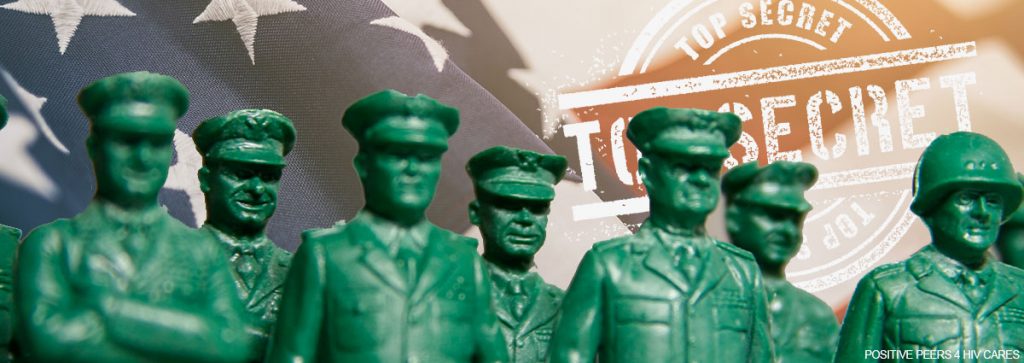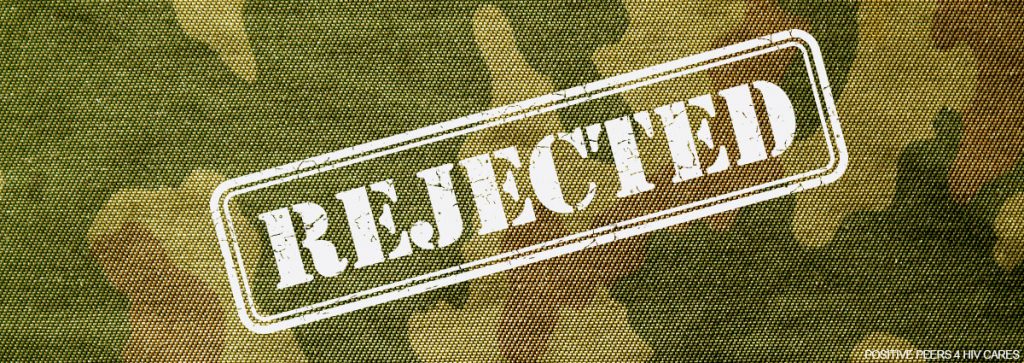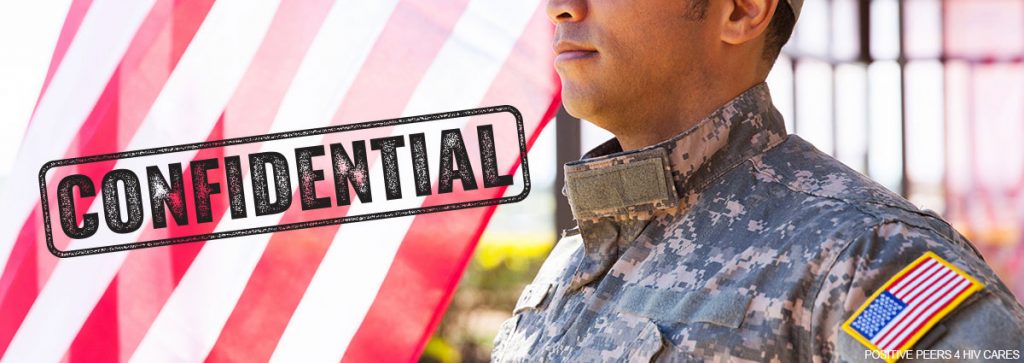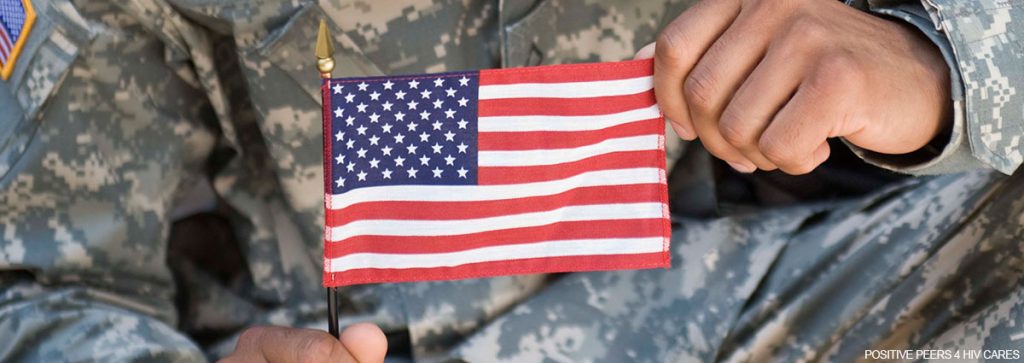
By: Jennifer McMillen Smith, LISW-S, HIV Social Worker at MetroHealth Medical Center and medically reviewed by Ann K. Avery, MD, Infectious Disease Physician at MetroHealth Medical Center
There’s something strange about how the U.S. military deals with HIV.
If you are someone living with HIV, the Pentagon won’t let you enlist at all. But if you contract HIV after you’ve enlisted, you can stay in the military but you can’t serve overseas — that means no combat duty.
No combat duty looks like a good thing at first glance because there’s not much chance of getting killed or injured in battle. But combat is a bigtime badge of honor in the military, so people who do combat duty often have a better chance of getting promoted. And that means those who don't do combat duty have less chance of getting promoted.
So, having HIV can be bad news for a military career. And that looks a lot like discrimination.
The Armed Forces have a long record of fighting discrimination, and it's doing well in many areas, but it needs help in others. HIV is one of those areas.

Why you can’t enlist if you are living with HIV
The military doesn’t want to enlist people who have health issues that take a long time to treat effectively. They also don’t want people with conditions that make it harder for them to carry out their duties.
For instance, if you have an eye disease that damages your vision, you probably won’t become a fighter pilot. There are hundreds of conditions that can prevent people from being enlisted. So, in that sense, HIV is not being singled out. (This document has the whole list of things that rule people out; it’s gigantic.)
The rationale of forbidding people who are living with HIV from enlisting made some sense 20 years ago when treatments weren’t as effective as they are today and the risk of transmitting HIV to other people was so much higher.
But these days, taking your anti-retroviral medications allow you to live a long healthy life and keep the virus from transmitting from one person to another.
Simply put, the military’s rules on HIV just don’t make sense anymore.

Staying in the military if you contract HIV
If having HIV keeps you from getting into the Armed Forces, why don’t people get kicked out if they contract HIV while serving?
Well, the Armed Forces invest a lot of taxpayer dollars in training service members, and they lose that investment if they just kick people out for getting an infection. So, they worked out a compromise: People can keep serving, but they have to stay in the United States (there is an exception for Navy personnel, who can still serve on ships at sea).
But, being able to travel the world is one of the prime perks of being in the military, right? And, people who can’t serve overseas can lose out on career opportunities that either require foreign travel or benefit from having done it.
As if that’s not enough, if you test positive in the military, you’re also under orders to practice safe sex — and you can be punished by military courts for violating the safe-sex orders (you can even go to jail for it).
Does that sound fair? Hint, the answer starts with “N” and ends with “o.”
Come join our private, stigma-free, supportive community.
Health management tools with medication & appointment reminders.
Social networking in a community conversation & private chats.
HIV shouldn’t prevent people from serving their country
HIV is a special case. It’s not like diabetes or high blood pressure, it’s actually much more manageable. But, people living with HIV face stigma, stereotyping, and discrimination that people with other diseases don’t have to deal with.
Most of these problems trace back to outdated notions of the dangers of HIV. New prevention options like PrEP, regular testing, and anti-retroviral meds have dramatically reduced the danger of living with HIV and the risks of transmission — but it doesn’t look like the U.S. military totally acknowledges this reality, yet.
As things stand now, the military can punish people for having HIV (that is, the safe-sex orders have such severe penalties that they’re basically the same as criminalization, which does not work).

What you can do
We do not have to let this situation stand. If you know people in the military, you can educate them about the limits of Armed Forces policy on HIV. If you know somebody thinking of trying to enlist, you can let them know what their chances are.
You can also get involved with Lambda Legal, which advocates for people with HIV in all parts of our society, including the military.
Speaking up can help encourage our Armed Forces to get its HIV policies in line with the current science of HIV and make sure they align with our values of freedom and fairness.
Military service has done millions of Americans a lot of good — providing training, discipline, and opportunities that improved their lives. Here at Positive Peers, we firmly believe that HIV shouldn’t keep you from pursuing a successful military career.
We are proud of all current service members and veterans. From the bottom of our hearts, we thank you for your service!
Related Blogs:


